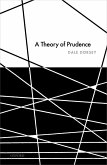Facing Up to Scarcity offers a powerful critique of the nonconsequentialist approaches that have been dominant in Anglophone moral and political thought over the last fifty years. In these essays Barbara H. Fried examines the leading schools of contemporary nonconsequentialist thought, including Rawlsianism, Kantianism, libertarianism, and social contractarianism. In the realm of moral philosophy, she argues that nonconsequentialist theories grounded in the sanctity of "individual reasons" cannot solve the most important problems taken to be within their domain. Those problems, which arise from irreducible conflicts among legitimate (and often identical) individual interests, can be resolved only through large-scale interpersonal trade-offs of the sort that nonconsequentialism foundationally rejects. In addition to scrutinizing the internal logic of nonconsequentialist thought, Fried considers the disastrous social consequences when nonconsequentialist intuitions are allowed to drive public policy. In the realm of political philosophy, she looks at the treatment of distributive justice in leading nonconsequentialist theories. Here one can design distributive schemes roughly along the lines of the outcomes favoured--but those outcomes are not logically entailed by the normative premises from which they are ostensibly derived, and some are extraordinarily strained interpretations of those premises. Fried concludes, as a result, that contemporary nonconsequentialist political philosophy has to date relied on weak justifications for some very strong conclusions.
Dieser Download kann aus rechtlichen Gründen nur mit Rechnungsadresse in A, B, BG, CY, CZ, D, DK, EW, E, FIN, F, GR, HR, H, IRL, I, LT, L, LR, M, NL, PL, P, R, S, SLO, SK ausgeliefert werden.









